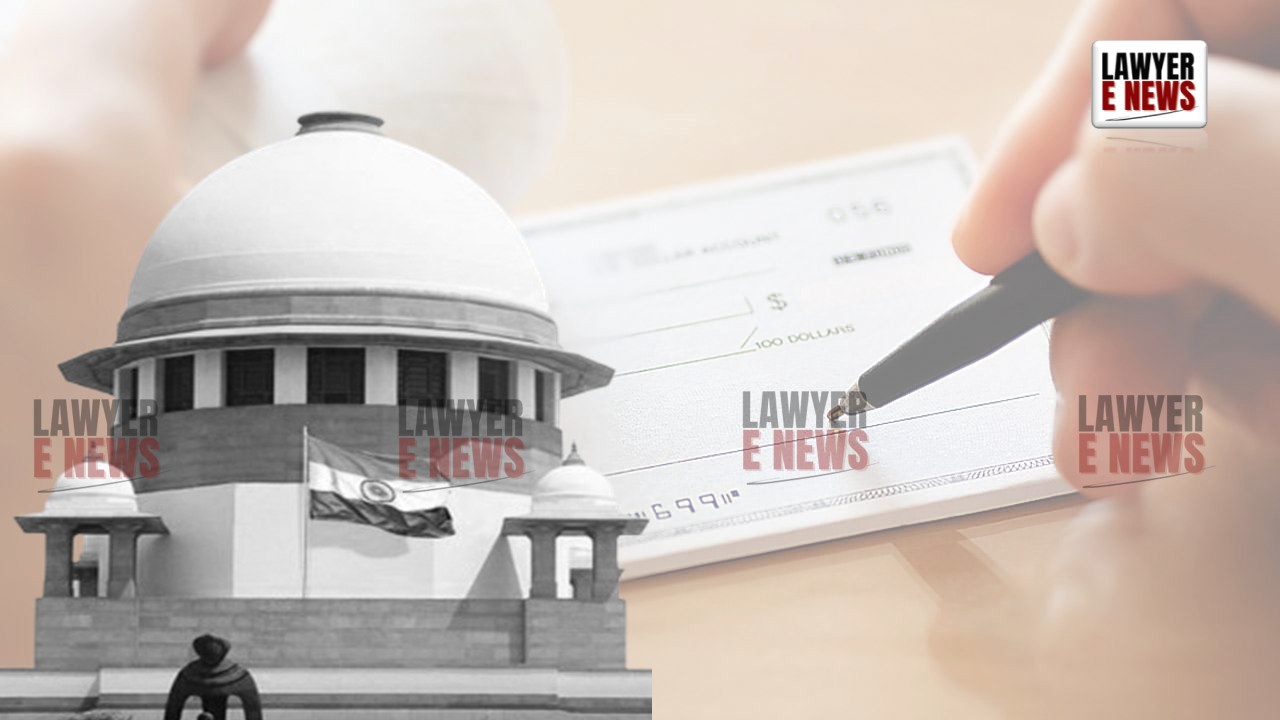-
by sayum
17 February 2026 8:32 AM



Failure to Consider Statutory Bar Under Goa Money-Lenders Act Vitiates Conviction Under NI Act: - In a judgment Supreme Court of India held that failure to consider the legal consequences of unlicensed money lending under the Goa Money-Lenders Act, 2001 rendered a conviction under Section 138 of the Negotiable Instruments Act, 1881 unsustainable. Exercising its powers under Article 142 of the Constitution, the Court acquitted the appellant, noting that he had already paid the entire cheque amount and compensation.
Justice Vikram Nath and Justice Sandeep Mehta unequivocally held: “The High Court, while reversing the acquittal of the accused-appellant, did not advert to the important issue regarding applicability of the Goa Act which provided a valid defense... Thus, apparently, the judgment rendered by the High Court does not stand to scrutiny.”
“Prosecution Under Section 138 Cannot Be Sustained When the Underlying Debt Arises from an Unlicensed Loan”
The appellant had been initially convicted by the Judicial Magistrate First Class, Canacona, for dishonour of a cheque under Section 138 NI Act, and was sentenced to pay Rs. 2,00,000 as cheque amount and Rs. 30,000 as costs, failing which he was to undergo three months’ imprisonment.
However, the conviction was set aside by the Sessions Judge, South Goa, who held that the complainant was engaged in money lending without a license, in breach of the Goa Money-Lenders Act, 2001. This rendered the transaction unenforceable in law.
Despite this finding, the High Court of Bombay at Goa, by its order dated January 7, 2023, reversed the acquittal and restored the conviction. The Supreme Court found this approach to be legally flawed.
The Court noted that the First Appellate Court had specifically relied on the illegality of the loan transaction, observing that:“The complainant-respondent was indulging in money lending activities, without acquiring a license, and was thereby acting in breach of the provisions of the Goa Money-Lenders Act, 2001.”
In failing to engage with this statutory bar, the High Court’s decision was held to be erroneous.
“Once the Statutory Defence Exists, the Court Must Consider Its Applicability Before Upholding Criminal Liability”
The Supreme Court faulted the High Court for overlooking the statutory shield available to the appellant. It held that when a local money-lending law like the Goa Act bars unlicensed recovery, the foundation of the cheque bounce prosecution is itself tainted.
The bench observed: “Apparently, the judgment rendered by the High Court does not stand to scrutiny. The statutory violation by the complainant went unexamined in a case where it formed the core defence.”
The Court acknowledged that the accused had returned the entire loan amount and that the complainant had accepted the amount — yet chose to proceed with criminal prosecution.
“Conviction Under NI Act Can Be Set Aside Where Full Amount Has Been Paid and Offence Is Compoundable”
Taking note of the fact that the appellant had already paid the entire cheque amount of Rs. 2,00,000 and compensation of Rs. 30,000 imposed by the trial court, the Supreme Court invoked its powers under Article 142 of the Constitution to do complete justice.
“In view of the facts noted above and considering the aspect that the accused-appellant has already paid the cheque amount and the fine... we hereby, exercise our powers under Article 142... to compound the offence and acquit the accused-appellant.”
The Court directed that if the full amount had not yet been paid, it must be disbursed to the complainant.
The Supreme Court’s ruling offers a strong reminder that courts must not ignore statutory prohibitions governing the legality of the underlying transaction, especially in cheque dishonour cases. If the debt is legally unenforceable due to lack of compliance with money-lending regulations, the criminal liability under Section 138 of the NI Act cannot be sustained.
Having noted the payment of full dues and the illegality of the loan, the Court concluded: “The present appeal is allowed... the accused-appellant is acquitted of the accusation under Section 138 of the NI Act.”
Date of Decision: May 6, 2025
